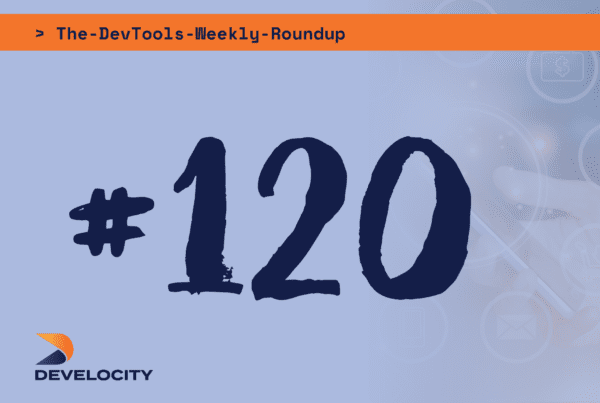A knowledge silo exists when information, expertise or skills are compartmentalized within an organization, inaccessible to others who might benefit from it. This not only hampers cross-functional collaboration but also leads to missed opportunities and inefficiencies. For example, a ground-breaking software feature developed by one team might remain underutilized because the design and marketing departments are unaware of its intricacies or potential applications and don’t create promotional materials that appropriately emphasis its key unique selling points. These isolated pockets of knowledge, whether due to organizational structure, cultural issues, or communication gaps, can significantly slow down a team’s ability to deliver solutions effectively and negatively impact the company as a whole. However, Artificial Intelligence (AI) offers powerful tools to break down these barriers, fostering a culture of open knowledge sharing and collaboration.
Why Do Knowledge Silos Develop?
Silos don’t begin from day one. In a startup with a few founding members it’s normal for everyone to know everything, which can have its own issues but not having information isn’t one of those. As a company grows, departments form and teams identify their own goals and metrics, flow of information can become restricted. There’s can be many reasons why and how silos appear, but typically they do so when there is a lack of communication, unclear processes, or a competitive environment between individuals or departments that discourage the flow of information.They can also appear when teams or departments prioritise their own goals over the collective success of the organization. When departments begin to adopt an “us vs. them” mentality it can cause one team to ensure their success by withholding information even if it is to the detriment of the company e.g. by hindering a sale or development of a new feature.
What are the Consequences of Knowledge Silos?
Knowledge silos can lead to duplication of efforts, inefficient problem-solving, reduced innovation, and hindered employee growth. They may also cause misunderstandings, conflicts, and missed business opportunities due to inadequate sharing of critical information.Stack Overflow’s Developer Survey in 2022 reported that more than two-thirds of those surveyed encounter a knowledge silo at least once a week, a number that increases to three-quarters for managers.
How can Learning and Development (L&D) Help Mitigate Knowledge Silos?
L&D plays a crucial role in breaking down knowledge silos by implementing strategies that encourage knowledge sharing and collaboration. This includes fostering a culture of open communication, facilitating cross-functional training, creating opportunities for employees to learn from one another, and utilizing technology platforms that enable easy access to shared resources.
AI Tools to Overcome Knowledge Silos
Before diving into some of the AI tools that help dismantle knowledge silos within development teams, let’s highlight the overarching benefits AI technology brings to the table.
Firstly, AI tools are crafted for easy integration into existing systems, a critical feature given the vast number of operation-support apps used by businesses today. This seamless integration facilitates smoother cross-departmental collaboration without the fear of operational disruptions.
Moreover, AI accelerates decision-making and boosts productivity by enabling data-driven insights, with many CEOs (over 54% according to a PwC study) acknowledging its positive impact on workplace efficiency.
Additionally, AI plays a pivotal role in uniting teams around a shared vision, mitigating the “us vs. them” mentality that often arises between departments. By serving as an impartial source of information, AI technologies foster a collaborative environment and encourage teams to work together towards common goals.We look at three categories of tools that can help with this: Communication Platforms, Information Sharing Tools and Coding and Development Tools.
Communication Platforms
- Slack with AI integration: Enhances team communication and collaboration by using AI to summarize conversations, recommend actions, and prioritize notifications based on urgency and relevance. This ensures that important information is not lost in the noise, helping teams stay focused and aligned.
- Microsoft Teams: Integrates AI features for meeting transcriptions, language translation, and content suggestions, making it easier for global teams to work together and share knowledge across language and geographical barriers.
Alternatives: Discord, Twist, Wire, Blink, Hive, Simpplr
Information Sharing/Searching Tools
- GitBook: Hailed as “your team’s go-to for technical knowledge management”, GitBook simplifies the creation, editing, and sharing of knowledge bases and technical documentation. Ideal for developer guides, API documentation, and user manuals, GitBook’s straightforward interface ensures information is effortlessly accessible, aiding in the breakdown of knowledge silos.
- Confluence with AI-powered features: Facilitates the creation and sharing of project documentation, meeting notes, and product requirements. AI assists in automatically organizing content, suggesting relevant documents, and improving search capabilities, ensuring that team members have easy access to the information they need.
- Notion AI: Aims to revolutionize how teams manage projects, documents, and knowledge bases. By leveraging AI, Notion can suggest content organization, generate summaries of lengthy documents, and even draft responses, streamlining knowledge sharing and documentation.
Alternatives: OpsLevel, Tabnine, Loom, Nuclino, Glean
Coding and Development Tools
- GitHub Copilot: Acts as an AI pair programmer by suggesting code snippets and entire functions based on the context of the work you’re doing. It can dramatically speed up the coding process and facilitate knowledge transfer by exposing developers to best practices and alternative coding solutions they might not have considered.
- Tabnine: Offers AI-based code completions for developers, learning from the codebase it’s applied to. This helps in understanding coding patterns and standards within a team, thereby reducing the learning curve for new team members and ensuring consistency across the codebase.
- Swimm: An AI-powered documentation tool that ensures code and documentation are always in sync. Swimm makes it easier to onboard new developers, share knowledge among team members, and maintain an up-to-date knowledge base of a team’s codebase, significantly reducing the impact of knowledge silos.
Alternatives: PolyCoder, Mintlify, Codacy
The Role of AI in Enhancing Collaboration
AI tools do not just automate tasks; they enhance the flow of information, making it more accessible and easier to manage. By automating routine tasks, AI allows team members to focus on creative and strategic activities. AI’s role in breaking down knowledge silos is also about providing insights and analytics that help teams understand how they work together and how information travels within the organization. This insight can lead to more effective collaboration strategies and tools selection. So leaders who see silos existing within their organizations should act promptly to bring teams together and prevent these silos from getting larger. Work to see where AI can add value, and once implemented mark the changes on business outcomes, customer experience and employee happiness!



